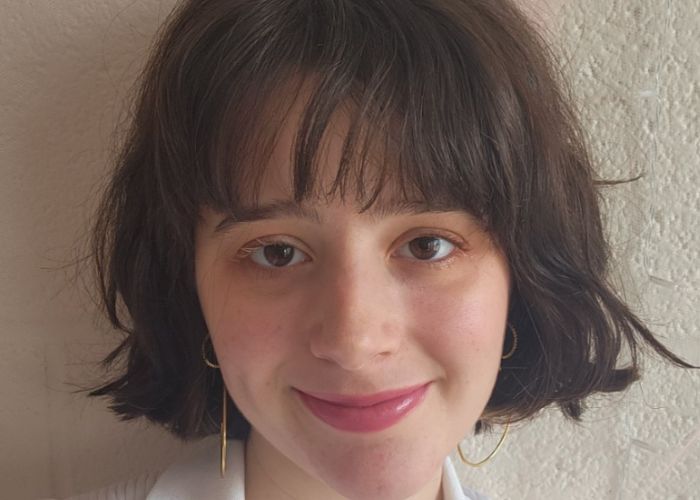What majors or minors did you combine with environmental studies?
I’m a biology and environmental studies major.

Why did you decide to become an environmental studies major?
I actually transferred to Wesleyan University for my junior year. Part of what interested me in transferring is that I was coming from a school that was just doing hard sciences and biology. I wanted to get a better understanding of its applications in the world, and I thought the environmental studies program was a very good way for me to see, especially in terms of sustainability, the impacts and the larger picture.
Can you tell me about your senior project?
I’m doing an essay that has to do with wastewater management and climate change. So, what is wastewater management? How does it function? And what are the problems with it? And how does climate change exacerbate it?
Why did you choose that topic?We have these family friends that my dad has worked with that has this really cool company called Clean Two that does septic tanks that have a process to denitrify the waste. So I learned all about why it was needed. It was placed near Cape Cod in Massachusetts, where they have a huge nitrogen problem in the water and all of it comes from wastewater. It’s kind of a solution to that. That got me interested in wastewater in general, and kind of understanding how climate change makes things more important in that matter.
Do you have a favorite class that you’ve taken during your time here?
That’s a great question. I was lucky enough that when I transferred here, a lot of my mandatory classes were already done. So I was able to take whatever I wanted. The best classes have been with the professor that I still take classes with, which is Christian Nakarado. My first semester here, I took ecological design with him. I really loved that class. It made me think in different ways and it made me function in different ways. I really enjoyed it. In that first semester, I really enjoyed another crosslisted class, Intro to the History of Biodiversity with Professor Fullilove. That was my first time really being able to see the importance of science, historically, and to understand the impact it has on society.
Do you have any idea of how you want to use the concepts, post-grad?
I’m still in the mindset of wanting to explore. I think I’m doing a teacher residency to be a kindergarten teacher. So that’s where I’m heading for the next two years. But again, I think in general, I just kind of want to get a better understanding of how things function and where I fit in.
Do you have any reflections on the environmental studies major throughout your time here?
I’ve really enjoyed the range of classes I’ve taken. For example, I had to take a politics class this semester. I was very opposed to it because that’s just not me. I don’t know anything about it, I’m not really interested. But I did really learn a lot and really enjoyed that class. I think that’s a great thing about the major, that you really get to do things that might not seem directly related to environmental studies, but you find the connections. I think that’s the most rewarding and fulfilling part: seeing how you can intertwine and mingle different things in different aspects.